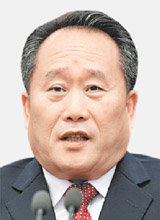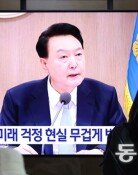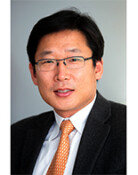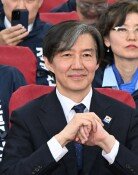N. Korea puts military hardliner at frontier of diplomacy with U.S.
N. Korea puts military hardliner at frontier of diplomacy with U.S.
Posted January. 20, 2020 08:05,
Updated January. 20, 2020 08:05

North Korean leader Kim Jong Un has sacked “U.S. specialist” Ri Yong Ho, who was in charge of negotiation with Washington, while appointing to the post hardliner Ri Son Gwon, chairman of the Committee for the Peaceful Reunification of the Fatherland. Kim Jong Un also replaced seasoned diplomat Ri Su Yong, who served as vice chairman of the North Korean Workers’ Party’s Central Committee and its international affairs department, with Kim Hyong Jun who served as North Korean Ambassador to Russia. After declaring the bid to seek frontal breakthrough vis-à-vis Washington during the party’s plenary meeting late last year, the North Korean leader is apparently sending a clear message to the U.S. to guarantee the security of the Kim Jong Un regime before its denuclearization by replacing the two top diplomats in a surprise move.
The North Korean leader reportedly dismissed Ri Yong Ho, who spearheaded preparations for the two North Korea-U.S. summits together with Choe Son Hee, its first vice foreign minister who had been in charge of U.S. affairs, by holding them accountable for stalled Pyongyang-Washington dialogue. The ousting of Ri Su Yong, who had been comprehensively overseeing Pyongyang’s diplomacy, was also confirmed as his name was missing from the list of funeral committee members for Hwang Soon Hee, a first generation ppalchisan (Communist militia) against Japanese imperialists.
Kim Jong Un’s latest reshuffle is interpreted by analysts as the North Korean leader’s message that Pyongyang will not seek denuclearization talks further unless U.S. President Donald Trump offers corresponding measures that are satisfactory to him.
“The appointment of hardliner Ri Sun Gwon hailing from the military to the foreign minister is quite unusual,” said Yang Moo-jin, professor of the University of North Korean Studies in Seoul. “It is a measure symbolizing the Stalinist state’s determination to pressure Washington to secure the guarantee of the Kim Jong Un regime before denuclearization talks, while leaving open dialogue channels towards Washington.”
As the North has made it clear its hard-line stance against the U.S. even after receiving President Trump’s personal letter, pundits say that Washington-Pyongyang dialogue will inevitably remain stalled for a longer term. Analysts also say that improving inter-Korean relations including South Koreans’ individual trips to the North, which South Korean President Moon Jae-in proposed in his New Year’s speech, will become more difficult than expected. In the meantime, a source in the South Korean government said, “We are paying attention to the possibility that the rise of Ri Sun Gwon, who has been spearheading dialogue with South Korea, could signal a shift in Pyongyang’s direction of relations prioritizing Washington over Seoul.
tree624@donga.com · record@donga.com
Headline News
- Israel prepares for retaliation against Iran
- Samsung reclaims top spot, surpassing Apple in smartphone market
- 77% of Koreans in 20s and 30s are 'Kangaroo Tribe' due to job crisis
- KBO referees embroiled in controversy over ABS decision concealment
- Inflation, oil price surge put double shock on global economy







